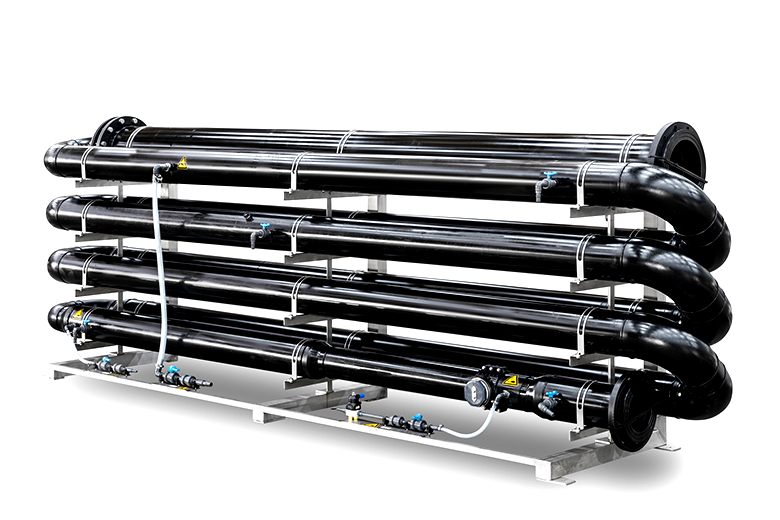Pipe Flocculator
A pipe flocculator, also known as a tube flocculator, is a type of flocculation device use in wastewater treatment processes. It consists of a series of interconnect tubes or channels through which the wastewater flows, promoting flocculation and the formation of flocs.
Process
The pipe flocculator operates on the principle of plug flow, where the wastewater flows through the pipes in a continuous and controlled manner. Chemicals, such as coagulants and flocculants, are typically add upstream of the flocculator to aid in the flocculation process.
As the wastewater flows through the pipes, turbulence and mixing occur, allowing the chemicals to interact with the suspend particles and promote the formation of flocs.
The flocs that are form in the pipe flocculator can then undergo sedimentation, flotation, or other separation processes to remove them from the wastewater. The size, strength, and settling characteristics of the flocs are influence by the hydraulic conditions and the design parameters of the pipe flocculator.
Significance
Pipe flocculators are commonly use in water and wastewater treatment plants, particularly in applications where a high degree of flocculation is require or where space limitations exist. They offer advantages such as efficient mixing, uniform flow distribution, and a compact footprint.
Overall, pipe flocculators play a crucial role in enhancing the effectiveness of coagulation and flocculation processes by providing controll and efficient mixing, allowing for the formation of larger, more easily settleable flocs, and improving the overall treatment efficiency of the wastewater.






